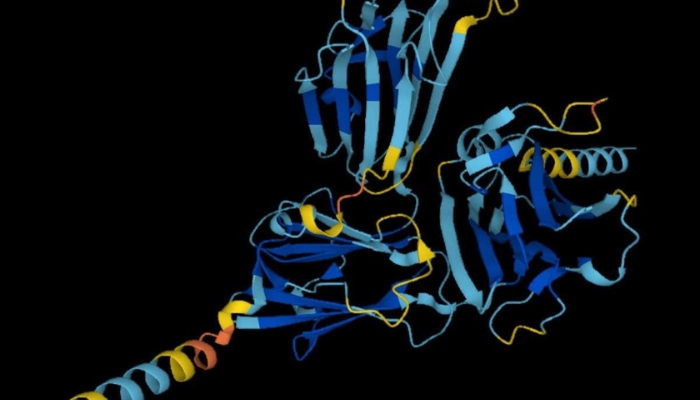DeepMind’s AI breakthrough may reveal biology’s secrets

AlphaFold’s breakthrough could enhance research in areas ranging from antibiotics and cancer therapy to resilient crops
Researchers are celebrating another “leap forward” in artificial intelligence as Google DeepMind reveals the latest version of its AlphaFold program, capable of predicting how proteins behave within the intricate processes of life.
This advancement holds the promise of illuminating the biological mechanisms that form the foundation of living organisms and propelling innovations in various fields, including antibiotics, cancer therapy, new materials, and resilient crops.
“It’s a significant milestone for us,” said Demis Hassabis, CEO of Google DeepMind and co-developer of AlphaFold3 through its spin-off, Isomorphic Labs. “Biology is a dynamic system, and understanding how biological properties emerge from interactions between different molecules is crucial.”
Previous iterations of AlphaFold concentrated on forecasting the 3D structures of 200 million proteins, the fundamental components of life, based on their chemical composition. Understanding a protein’s structure is vital as it dictates its function—or dysfunction—within a living organism.
AlphaFold3 was trained using a worldwide database of 3D molecular structures and takes a step beyond by forecasting how proteins will engage with other molecules and ions they come across. When prompted to make a prediction, the program begins with a cluster of atoms and methodically transforms it into the most precise predicted structure.
In a publication in Nature, the researchers detail AlphaFold3’s ability to anticipate how proteins interact with other proteins, ions, genetic code strands, and smaller molecules, including those used in medications. During testing, the program demonstrated an accuracy range of 62% to 76%.
“We believe we’re on the verge of unlocking a wealth of new scientific discoveries,” stated John Jumper, a contributor to the project at Google DeepMind. “Early adopters are already leveraging this technology to comprehend cellular mechanisms and their deviations in disease.”
Academics can access AlphaFold3 for non-commercial purposes via Google’s dedicated server.
Dr. Julien Bergeron, a structural biologist at King’s College London, investigates the propeller-like flagellum used by bacteria for swimming and attaching to tissues during infections.
He participated in testing the AlphaFold3 server before its public launch, aiming to identify molecules that disrupt these biological propellers. “We can now test hypotheses before setting foot in the lab, which will be truly transformative,” he noted.
Other researchers will employ the program to design molecules and antibodies that can bind to proteins or genetic code segments, potentially treating various medical conditions and diseases.
Dr. Ivo Tews, from the University of Southampton, praised AlphaFold3 as a significant advancement and stated that his laboratory would utilize it to develop antibodies for cancer treatments. He added, “It will save an enormous amount of time and accelerate research by generating models that we can then explore with new experiments.”
Further research could lead to more productive crops by understanding why some plants photosynthesize more efficiently than others and discovering methods to enhance the process.
Despite its advancements, researchers will still need to validate the AI’s predictions through lab experiments, as they are not flawless. Another limitation is that AlphaFold3 struggles to predict how proteins may alter their shape in living systems in response to their surroundings, an area that requires further investigation.
“Proteins carry out their functions through interactions with various molecules,” stated Professor Dan Rigden from the University of Liverpool. “AlphaFold3 predicts the intricate molecular details of these interactions, along with protein modifications and RNA structures, often achieving unparalleled accuracy.
“Like its predecessor, AlphaFold3 is poised to provide substantial benefits across the field of biology, aiding in addressing significant research hurdles ranging from food security to drug and vaccine design.”


